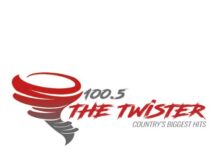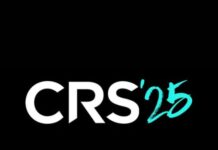
(By Mike McVay) Whenever a conversation turns to audio, you can expect that podcasting will be the first thing that is talked about. The category not only includes podcasting, but streaming, on-demand, and audio with video and radio. Despite being the most profitable part of any audio platform, radio is seldom mentioned first. That includes a discussion among consumers and many in our industry. The enthusiasm for podcasting was clear at last week’s Podcast Movement in Denver. Several thousand podcasters, and those engaged in businesses that feed off of or support podcasting, were in attendance to learn, share, sell, present, and build upon podcasting.
The excitement around podcasting, and being at a podcast-focused event, was at a very high level. Podcast Movement reminds me of the days of Radio & Records conventions. Young people rush from one session to another, recording panels, taking notes, paying attention, meeting and networking with others, and freely sharing their work, creative processes, visions, and opinions. It was exhilarating.
It was also a bit disappointing as that same enthusiasm isn’t as clearly evident when it comes to legacy media. Don’t get me wrong: there is much to be excited about in being a part of mass media, but it’s not as visible as what I witnessed last week.
It’s easy for those of us who are a part of legacy media to forget the feeling of excitement we once had to work in radio. The thrill of walking into a radio station. Seeing the receptionist. Noticing the posters and gold records on the walls. Music was playing in the hallway. The camaraderie of sitting with others who share the same job category as you and swapping “war” stories. The feeling that you’re not working even when you are working. You’re being paid to have fun. The “bennies” that go with the job. Concert tickets, sporting events, free meals, and unclaimed prizes in the prize closet.
The pandemic accelerated changes that were already on the horizon for the business of radio. Prompting a reason to feel anything but excitement. Some radio stations no longer have receptionists. Flex hours and WFH has left empty hallways. No one comes to the radio station to pick up a prize and it’s rare when an advertiser shows up to see how their commercial is written, recorded and scheduled for on-air. Phone systems, direct communication to Mobile Phones, E-mails, technology that allows for prize fulfillment and direct delivery from the source, has pretty much eliminated the need for a front desk person.
There are fewer on-air people in many stations due to voice-tracking, syndicated/network programming, and some stations with dayparts that are delivered as music & sweepers without any form of personality. Production and Imaging is largely outsourced. Many stations have moved their Traffic departments to a hub. Engineers cover multiple markets. The same with Program and Sales Directors. We’re seeing Market Managers have an overview and responsibility for more than one market. The new way of operating radio properties is disconcerting to those that long for “the good old days.” Those days are long gone. In the words of Carly Simon “these are the good old days.”
Before I leave the impression that I am a naysayer about radio, there is a lot to be excited about, but it is sometimes hard to find. It can sometimes require a scavenger hunt. Reasons to be excited are there, but you may have to look more deeply. It’s easy to see the excitement in those that are successful as talent, sellers, creatives, and event & promotion managers. Unfortunately, not every station or business fosters enthusiasm. No one should dread going to work. It should be easy to be enthused about being a part of our business.
Five Steps to Creating an Enthusiastic Environment:
- Remember that this is Show Business. We got into this business to put on a show. Be a part of the show. We want to be in or around the spotlight.
- Make the workplace look and feel like it’s a part of the entertainment industry. Too many radio facilities look like an insurance agency. (No offense intended to the insurance industry).
- It’s a Show. It isn’t a shift. Create a positive atmosphere where your talent can perform. It’s not work. It’s play. Don’t make them “punch the timeclock.” Encourage them to put on a show.
- Share the wealth. Meaning the tickets, the events, the meals, the fun, and the unclaimed prizes. It does no one any good when expired tickets are found in the Program Director or Promotions Managers desk drawer.
- Respect and reward your on-air talent, your best sellers, the production team, the admin team members that go beyond the call of duty … including the promotion team, the traffic department, the engineer, or IT worker who keeps the business up and running.
Your business will prosper if you can create a work environment that fosters excitement and creates enthusiasm.
Mike McVay is President of McVay Media and can be reached at [email protected]. Read Mike’s Radio Ink archives here.








I live in a small market – two diary books a year. It is dominated by 2 groups. One has live personalities on most of its stations. It also has visibility in the community. Community is very important in a smaller market. The other group runs off a hard drive. When I drive by their facility there are rarely any cars in the lot (except got the stationary station vans). Now, that group is selling its property. It makes me wonder if they will have any presence in the market at all. So much for caring about listeners and advertisers.
Enthusiasm starts at the top. Winning also helps. People don’t work for companies, they work for people. People also want to work FOR something.
Radio needs to stop playing defense and start rediscovering what has made it a (still) viable medium. Mike is correct – this is show bidnis. Playing the best testing 150 songs is not enough. Listeners tune in for an emotional connection. Fun is the best way to forge that bond
Mike’s excitement about podcasting isn’t different from the excitement over smart speakers, the Blackberry and flying cars. When podcasters realize how much effort goes into podcasting on a regular basis they’ll go back to playing video games in their mom’s basement. Onto radio, I’m sitting here watching images of the big shots from the big companies stream by knowing full well that while THEY are at their conferences all gussied up, their staff is trying to do what they’re told without knowing why. If radio could adopt a similar business model as the NFL – it might start winning. Each radio station would be a “team” with a coach, a manager, a strategy. An NFL coach wouldn’t be saddled with trying to get 3 different teams to compete in the arena. In 2023 there are still brands that champion what they do. Coke, McDonald’s, The NFL. Other brands are struggling because their focus isn’t on the consumer. It’s plain to see. Radio is NOT a Wall Street business, and those who are in it are swimming upstream to try to prove that it is.
The concept that Covid was the final event that caused radio it’s ultimate demise is a cliche and a bad one. This business has been steadily sinking since 2007. Covid only provided cover for the incompetent and the horrific strategies that continue to signal it’s lack of relevancy in the marketplace.
The programmers that are left primarily are great at politicking and keeping their format captains or VP’s happy by kissing their posterior. Radio’s presentation seems stuck in the 80’s with talent that couldn’t have made it in the 80’s.
Let’s get real here, the house is on fire and we’re discussing painting the trim. Half the time one consultant wants to compare every challenge in radio with a pot pie or coffee brand, or he’s solving some other non relevant brands issues, what a joke!
Where are the tune on-attractions and where are the talent that can move the needle. Not on the air, of course there a few exceptions but this generation of “talent” is mostly an embarrassment.
Now get ready, because starting Monday this radio station will be relevant.